Mozambique: Parliament considers recruitment of children by terrorists a "barbaric act"
Mozambique: SADC wants solution for terrorism without international interference – analyst | Lusa
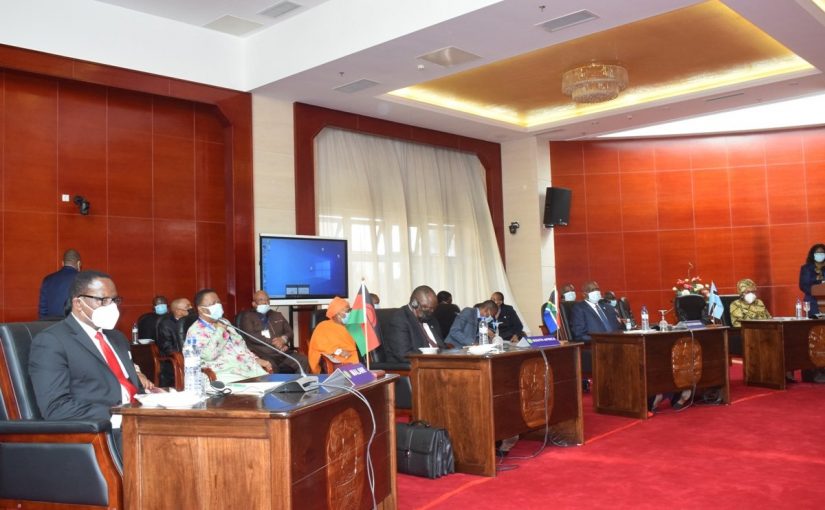
Picture: twitter / @MBCNewsLive
South African lawyer and scholar Andre Thomashausen has told Lusa that the Southern African Development Community (SADC) on Thursday clearly indicated that it prefers to deal with the crisis triggered by armed violence in northern Mozambique without foreign interference, Lusa reports.
“It was already anticipated that this SADC summit would not be able to take concrete measures, due to the division of opinions that exists within SADC and also the lack of means and manpower that can be offered for an intervention in Cabo Delgado,” Thomashausen said at the end of the SADC Defence and Security summit, which brought together five heads of state and the representative of Tanzania’s president in the Mozambican capital, Maputo.
In a statement at the end of the Extraordinary Summit of the SADC Double Troika, which integrates the countries in the Defence and Security Organ and Troika of the SADC, the leaders of Mozambique, Botswana, Malawi, South Africa, Zimbabwe and Tanzania condemned the “acts of terrorism against innocent civilians” in the northern region of their neighbouring country, manifesting “solidarity with the government and the people of Mozambique”.
According to the statement, the six regional leaders also indicated that they will “immediately deploy a technical team to Mozambique” and hold “an emergency ministerial meeting on April 28, 2021 that will report to the SADC Troika Organ Extraordinary Summit. on April 29th”.
“It is too little,” Thomashausen comments. “It expresses solidarity, but it is interesting for what it does not say. It does not appeal to the international community to intervene, it does not appeal to the African Union to intervene, it does not appeal to friendly countries that have already offered military assistance, among them Portugal and the United States.”
In his view, “By not reacting to these offers, SADC clearly indicated that it prefers to deal with this crisis at the regional and African level, and without foreign interference”.
“The very obvious reason for this is that here in the SADC region, there is no one who feels an admiration for the European Union and the United States’ anti-terrorist actions in several countries in crisis, namely in Mali, Somalia, Syria, Libya, among others, because Western counterterrorist interventions have always resulted in battlegrounds with scorched earth, destruction of institutions and the creation of instability or even anarchy and the absence of state administration in these affected countries, and here in the region no one wants this to happen in the north of Mozambique,” he stressed.
Therefore, the countries of the southern region of the continent “continue to bet on their own initiative, on their own commitment”, considering that “there will certainly be regional cooperation”, namely from the South African government.
“South Africa, which already has a very small and very discreet detachment in Cabo de Delegado, will continue to provide support, particularly in terms of gathering information from the intelligence services to better understand who these insurgents are and how one can try dialogue and define their demands and the malaise that exists in Cabo Delgado, because this insurgency is already becoming a popular revolt,” he said.
Thomashausen added that “it is clear that neither the SADC nor Mozambique is inviting anyone to make a military intervention, which does not mean that certain countries or certain capacities are not welcome to assist”.
“In the collection of intelligence, in the training of specialised personnel, in the retrofitting of the Mozambican Defence and Security Forces, which is what the European Union has been offering and which Portugal is in the process of implementing, in a specialised training mission,” he instanced.
“But I believe that there will be no military or humanitarian intervention because there is also this category of states that take responsibility for assisting, and I believe that Mozambique has no intention of authorising such interference,” the South African academic said.
The violence unleashed more than three years ago in the province of Cabo Delgado escalated still further about two weeks ago, when armed groups first attacked the town of Palma, about six kilometres from the multimillion-dollar natural gas projects.
The attacks caused dozens of deaths and forced the flight of thousands of residents, aggravating a humanitarian crisis that has affected about 700,000 people in the province since the beginning of the conflict, according to United Nations data.
The Islamic State terrorist movement claimed control of the village of Palma on the border with Tanzania on Monday, but the Mozambican Defence and Security Forces (FDS) announced on Monday that it had completely retaken control of the village, information reiterated this Wednesday by the Mozambican president.
SADC fends off US / EU anti-terror intervention in Cabo Delgado. NO to another Mali / Somalia / Libya / Syria disaster on the African continent. The global Anti-Terror lobbies are frustrated. But TOTAL continues to support a national resolution of the uprisings. pic.twitter.com/TjE6xn8lxq
— André Thomashausen (@AThomashausen) April 8, 2021


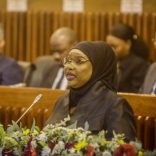
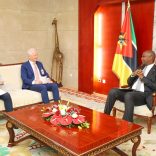
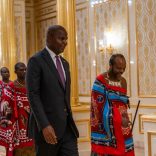
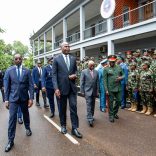

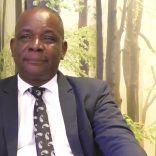




Leave a Reply
Be the First to Comment!
You must be logged in to post a comment.
You must be logged in to post a comment.